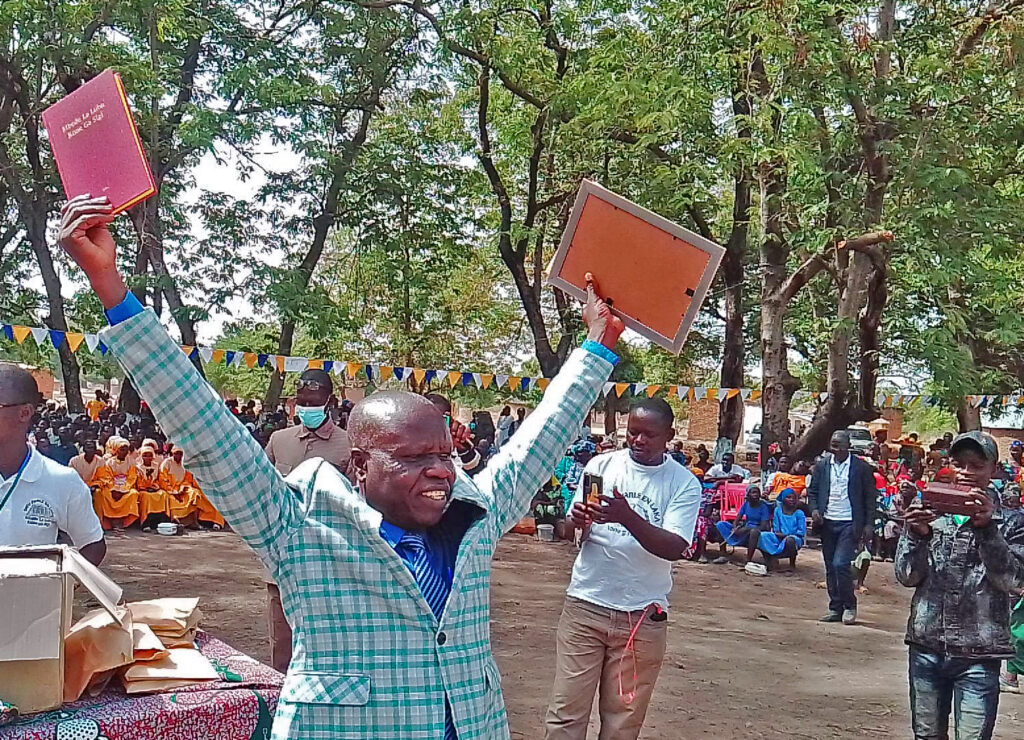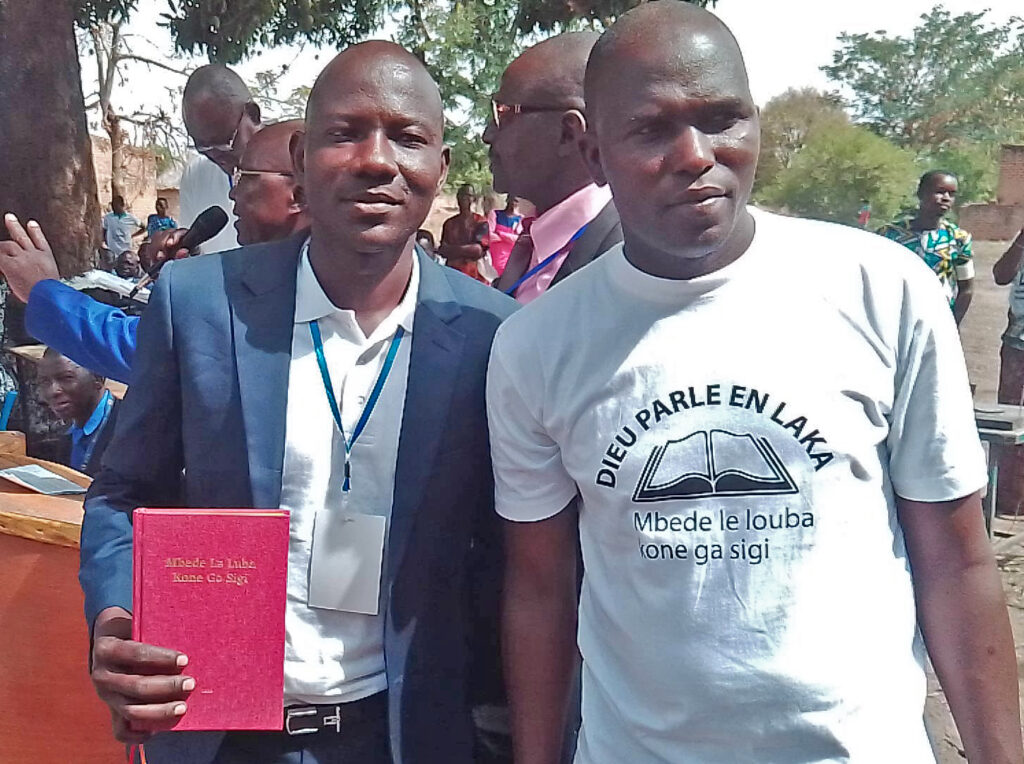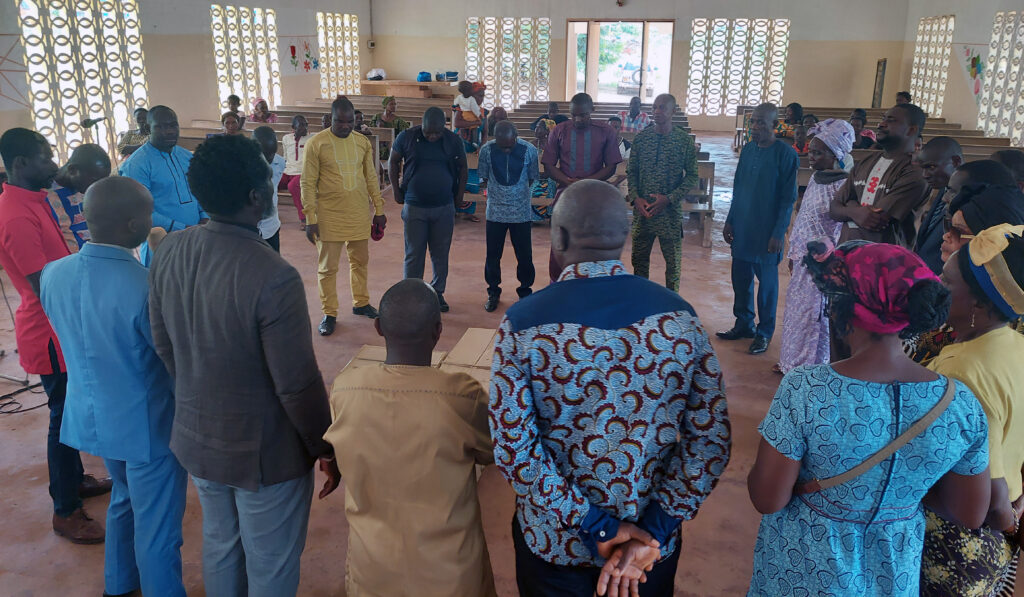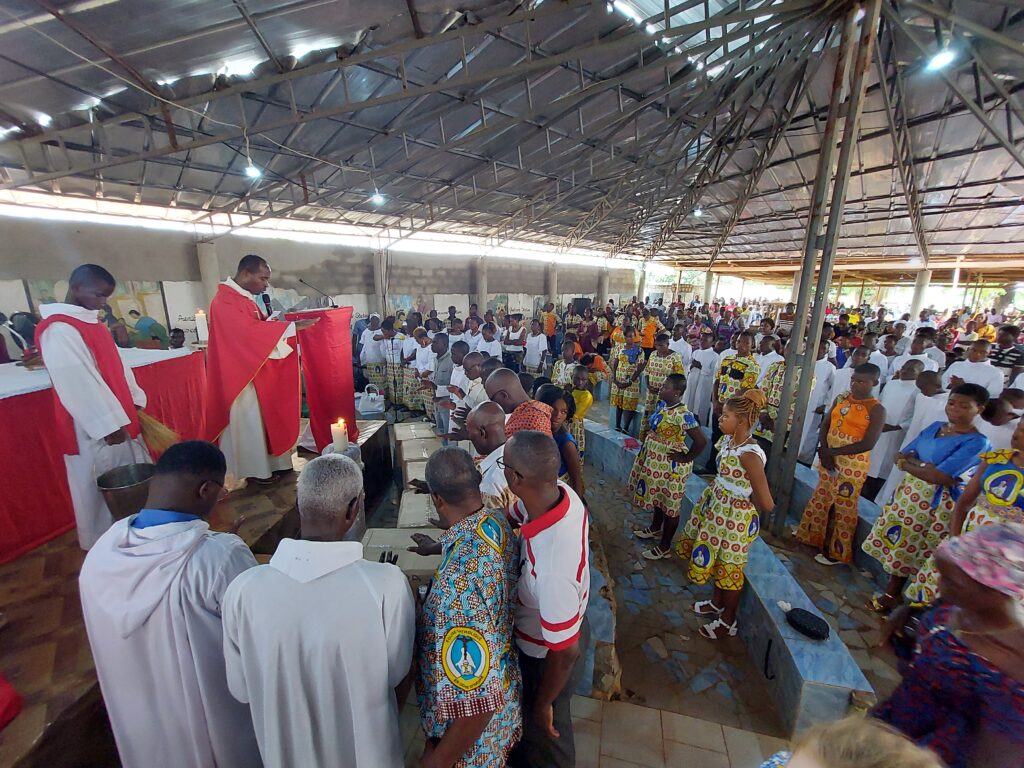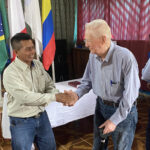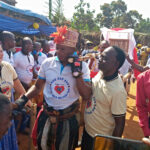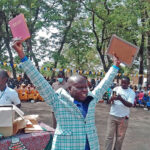Unexpected Breakdown…Unexpected Fruit!
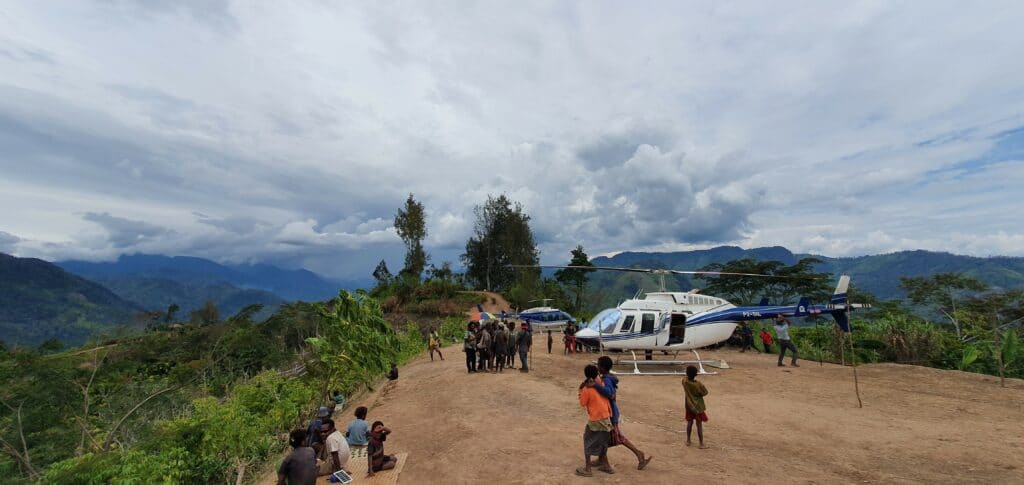
Recently, Fred Leman undertook a special helicopter mission to the Narak language community to deliver a load of newly printed “tok ples” (local language) dictionaries for dedication. These dictionaries are important resource materials to use alongside the Narak New Testament, which was dedicated in the 1980s, and for ongoing literacy work.
Before reaching Narak, Fred made a short stopover at Kwiama, a nearby community where Maring, a totally different language is spoken. For a variety of reasons, Bible translation work had never progressed very far in Maring. The Bible Translation Association of PNG (BTA) had suspended the program due to lack of community support. Terry Cirre, the Highlands regional director, was with Fred and had requested the short stopover so that he and the BTA leader Mara, another passenger, could give the local community leaders some culturally appropriate “strong talk” to encourage them to take on responsibility for their own Bible translation.
Given the circumstances, Fred and his two passengers were taken off-guard by the unexpectedly exuberant welcome they received. “We experienced one of the most intense cultural welcomes I’ve ever seen,” Fred wrote. A dance by “Mud Men,” groups of singers, lots of flowers, and transport in homemade bamboo chairs balanced on the shoulders of community members.
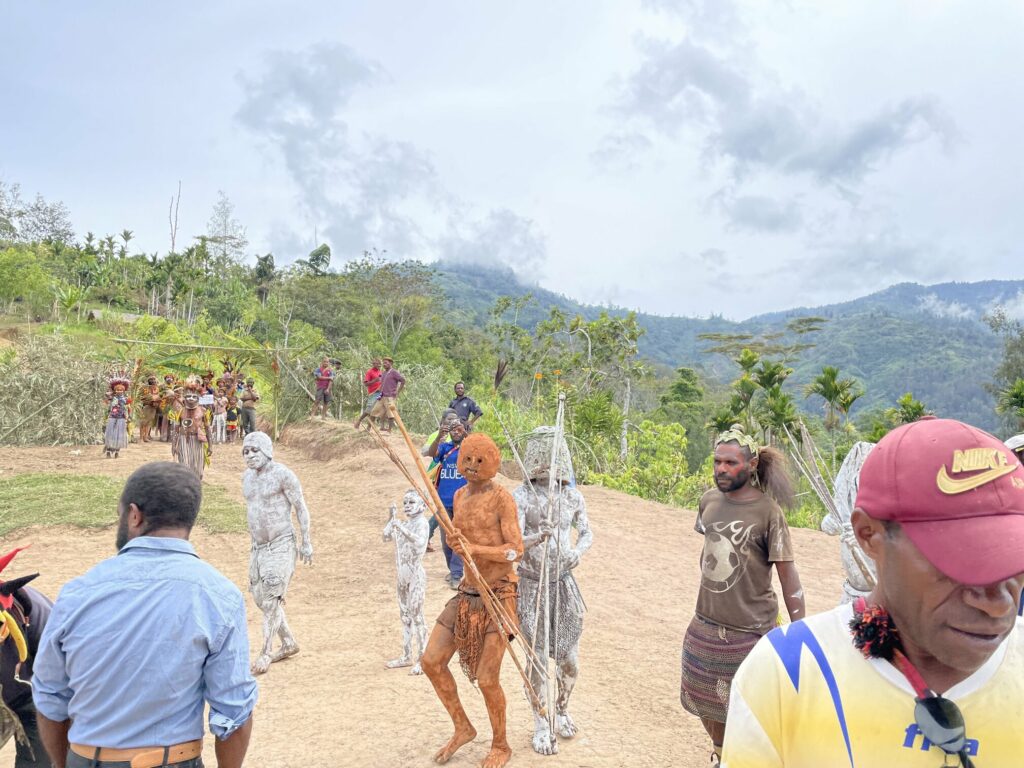
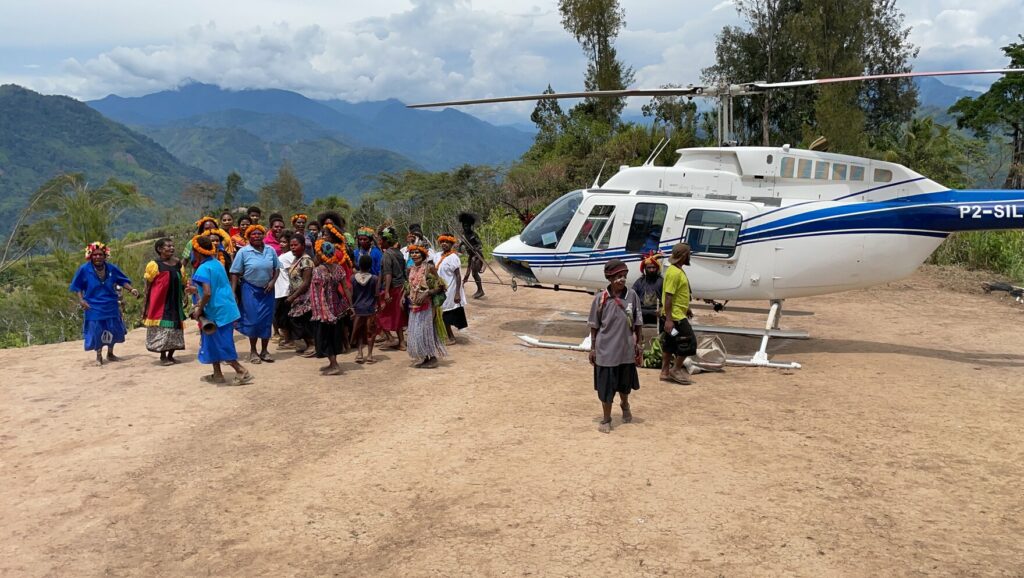
Terry had told the community leaders that they could only spend two hours in Kwiama, since they were expected at the dictionary dedication in Narak. So the Kwiama community worked very hard to hold a tight schedule, which is difficult to do in PNG! Terry and Mara soon learned that there was no need for “strong talk.” The Maring community had already formed a new Bible translation committee, started work, raised their own church donations, and just needed encouragement and direction. Unfortunately, they were limited by that tight schedule.
Two hours later, Fred and his passengers said their goodbyes and thank-yous, loaded up, and prepared to take off. Fred went through his normal preflight check, started his timer, and pressed the starter button on the collective. Nothing happened. He reset, repeated everything; but again, nothing! All systems indicated normal and functioning, but there was no reaction from the starter. So, there they sat! Isolated on a helipad situated on a narrow ridge line. They weren’t far from Mt. Hagen, the nearest open airstrip, but it would be difficult to get there on the ground.
With a quick check, Fred found he had a good cell signal. He called the base and, with help from the maintenance staff, did some troubleshooting. They determined that the most likely culprit was the starter relay, but they had to figure out how to get one out to Kwiama.
After considerable organizing, their plan emerged. The following morning, their Kodiak would fly Daniel Jezowski, an engineer, and a new relay from home base to the Mt. Hagen airstrip. Meanwhile, Robert Handasyde would fly their other helicopter from its location in another province and meet the Kodiak at Mt. Hagen. Robert could then fly Daniel and the relay to that narrow ridge at Kwiama where Fred was waiting. Thankfully, there was enough room on the ridge for two helicopters to set down.
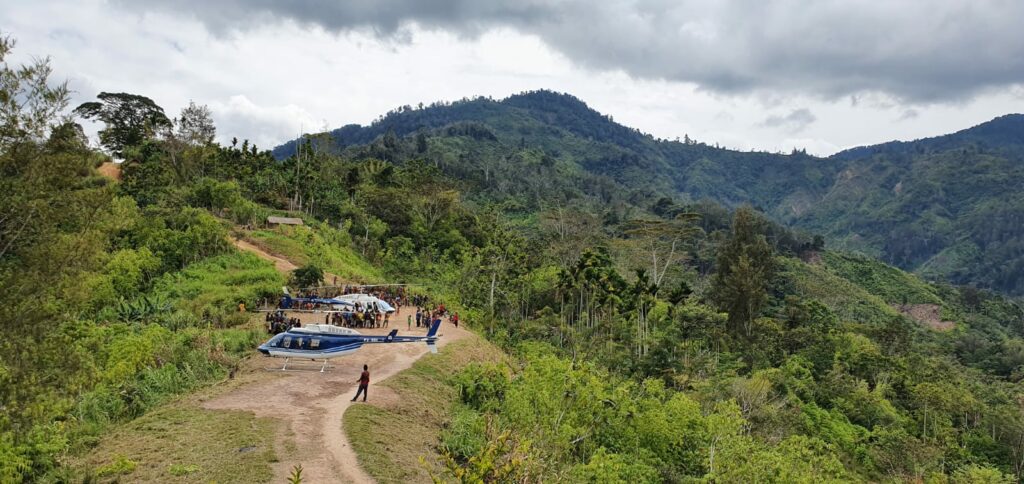
The plan meant that Fred, Terry, and Mara would stay overnight in Kwiama. The community happily found them a place to stay with a family member of one the Bible translation committee members. The layover, a blessing in disguise, gave Mara and Terry lots more time to evaluate, advise, encourage, and collaborate with the community about the translation work they wanted to start up.
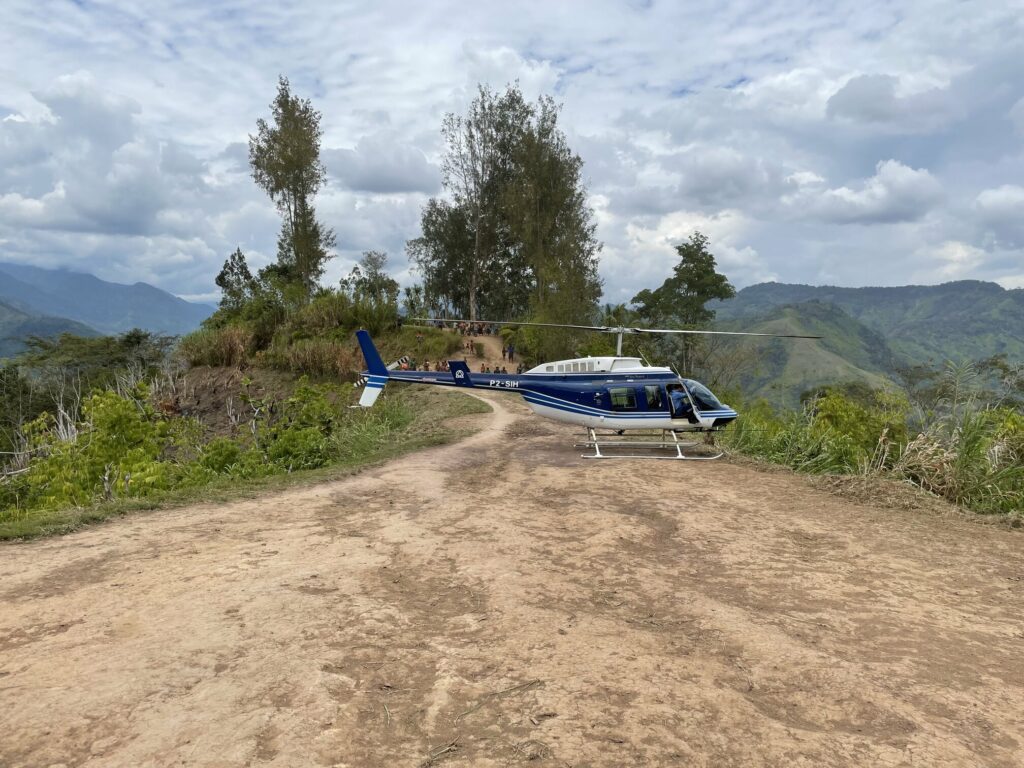
Fred was relieved the next day when Robert set down with Daniel and the relay aboard. They quickly swapped out the new relay for the old one and set up for a test run.
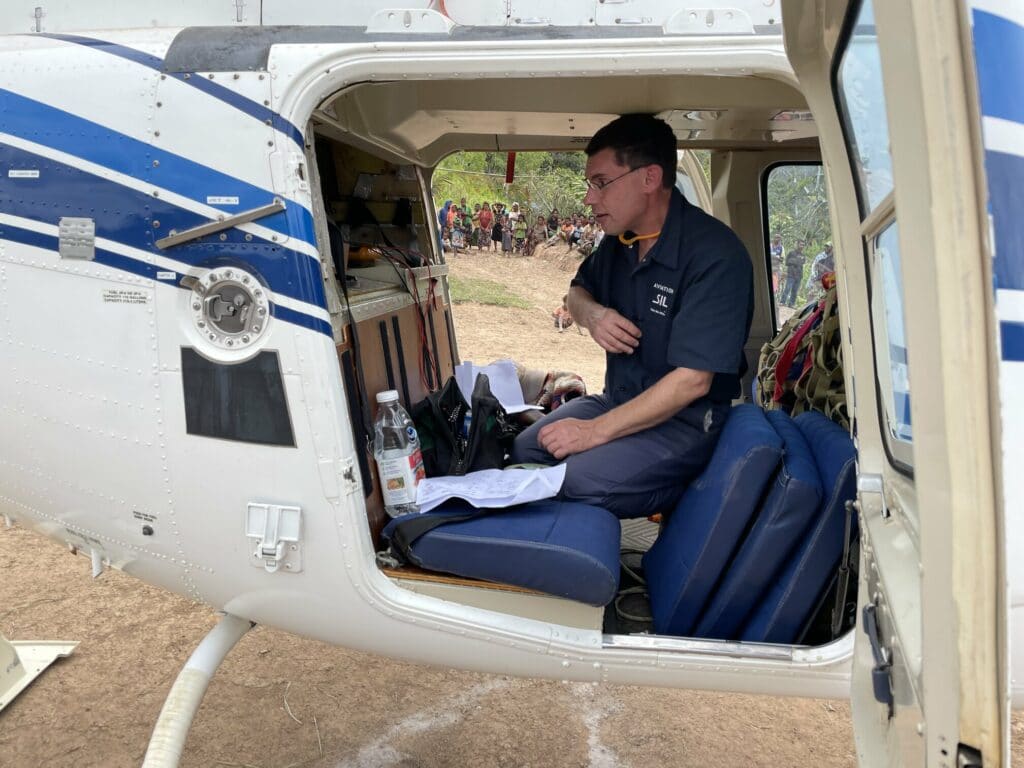
Again, Fred went through the pre-start routine and hit the starter button. Nothing happened! Again! They soon realized the relay wasn’t the problem.
More troubleshooting ensued, this time with help from Daniel and Robert. They decided the problem had to be the starter/generator itself. More phone calls to home base revealed that the spare starter ordinarily kept on hand there had recently been used to solve some issues with their other helicopter. So after several more phone calls, they found a commercial operator in Mt. Hagen who had the part they needed. Robert made a quick trip back to Mt. Hagen to pick up the new starter. Terry and Mara flew with Robert so they could catch a flight home on the Kodiak.
When Fred realized they were going to have to replace the starter/generator, he knew they would need a ladder or box of some kind to reach into the engine bay. He asked an onlooker if anyone had something like that around. The fellow said, “Sure, I’ll be right back.” About 15 minutes later he came walking back up the hill with the ladder in the picture. Turns out he just went home and quickly made it! He was pretty proud to hold the ladder for Daniel. Papua New Guineans are very resourceful!
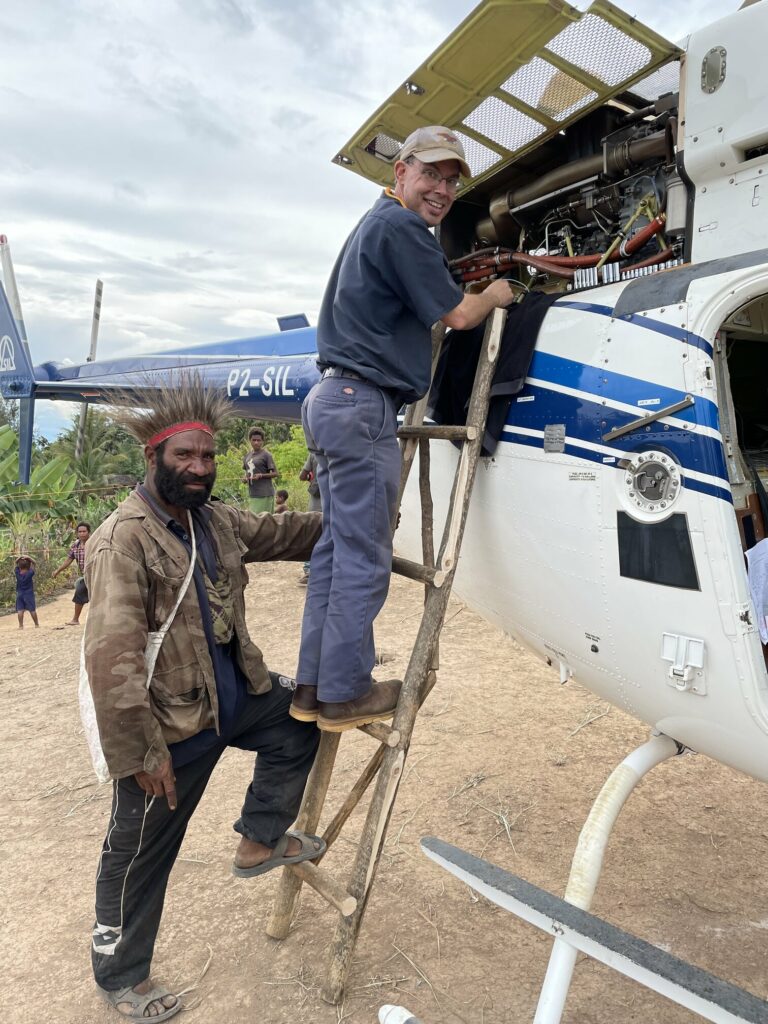
Daniel and Fred then removed the defective starter in preparation for the new one. When Robert returned with the new starter, they soon had it installed. Once again, Fred went through the pre-start checks and pressed the starter button. It fired right up! That was a great feeling! They loaded up, and with the good weather holding up, headed home to Ukarumpa. With a great sense of relief, they set down back at the Aiyura airstrip.
Fred says he has some wonderful take-aways from this whole event. “First, we have an incredible team! While I was stuck on the ground in the middle of nowhere, there were at least eight people from four different departments working on a solution. Second, God used an incredibly inconvenient event to produce some unexpected fruit in the Maring community. That unexpected fruit was worth every bit of inconvenience we went through!”
What about the dictionary dedication? Well, a couple of weeks later, they arranged a new flight back to the Narak people. The schedule change enabled Rene, who had worked as an advisor on the project, to go along. And with extra time on the ground, Rene conducted a training course for a large group of school teachers and church leaders. This would never have happened if the original plan had worked out!
Another harvest of unexpected precious fruit!
Information for this story supplied by Fred Leman, a JAARS-trained helicopter pilot serving in Papua New Guinea.






























































